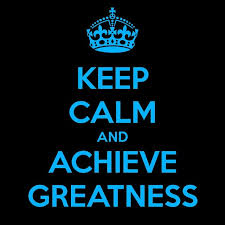 I read somewhere recently that Soft Skills have become today’s Hard Skills. This is something to think about as we move further into the information age and away from the industrial age. It’s not that we will do away with hard skills. Trades, factories, mining, the list goes on, will still be around and those working in them will always need those hard, technical skills to do the job. But more and more, even for occupations in those trades, soft skills are being recognized as a critical component of the whole worker. Two of the most important soft skills that are coming to the forefront are adaptability and flexibility.
I read somewhere recently that Soft Skills have become today’s Hard Skills. This is something to think about as we move further into the information age and away from the industrial age. It’s not that we will do away with hard skills. Trades, factories, mining, the list goes on, will still be around and those working in them will always need those hard, technical skills to do the job. But more and more, even for occupations in those trades, soft skills are being recognized as a critical component of the whole worker. Two of the most important soft skills that are coming to the forefront are adaptability and flexibility.
Some people mistakenly think that the ability to change according to the needs of a situation or a willingness to compromise, show weakness or a lack of conviction. In reality, the ability to compromise, adapt to change and still thrive are keys to success in the fast-pace workplaces in which most of us find ourselves. Change can be scary, but learning to adapt and flex as needed is an investment worth making.
“You must always be able to predict what’s next and have the flexibility to evolve.” – Marc Benioff
To me, adaptability and flexibility is about creativity. It’s being open to other alternatives in any situation. It’s about looking for the second or third “right” answer. There is always more than one right answer to a given problem; the trick is to find the one that you are most comfortable with and the one you can live with. Just because we have done something the same way for years, doesn’t mean it still works today. Thinking creatively, sometimes “out of the box,” will often produce a solution that is both effective and surprising. It is these solutions that add energy to projects and help them on their way to success.
We all have those moments in life where we are confronted with change: small and inconsequential, or massive ones such as change in the workplace (either a promotion or demotion); change in family life (the birth of a child or death of a parent); a move across town or across the country, may be even to totally different country. The ability to adapt to changes, to be flexible, is about accepting reality and coping with it.
“Change is the law of life and those who look only to the past or present are certain to miss the future” – John F. Kennedy
How can you showcase your adaptability? Studies show that people who are highly adaptable may be more highly valued than those who are highly skilled but less willing to adapt, flex, and change. Some ways to demonstrate adaptability on the job are:
- Be open to alternative solutions when your first suggestion does not go over well or succeed
- Be willing to take on new roles, even when they are a stretch for your skills
- Be willing to help others generate alternative solutions or plans
- Be willing to accept the unexpected
- Keep your calm, even when things are moving fast or are stressful
- Demonstrate confidence in your ability to complete the job even when you’ve had to adapt or flex
Taking the time to develop your soft skills such as adaptability and flexibility will give you additional opportunities in any endeavour.




